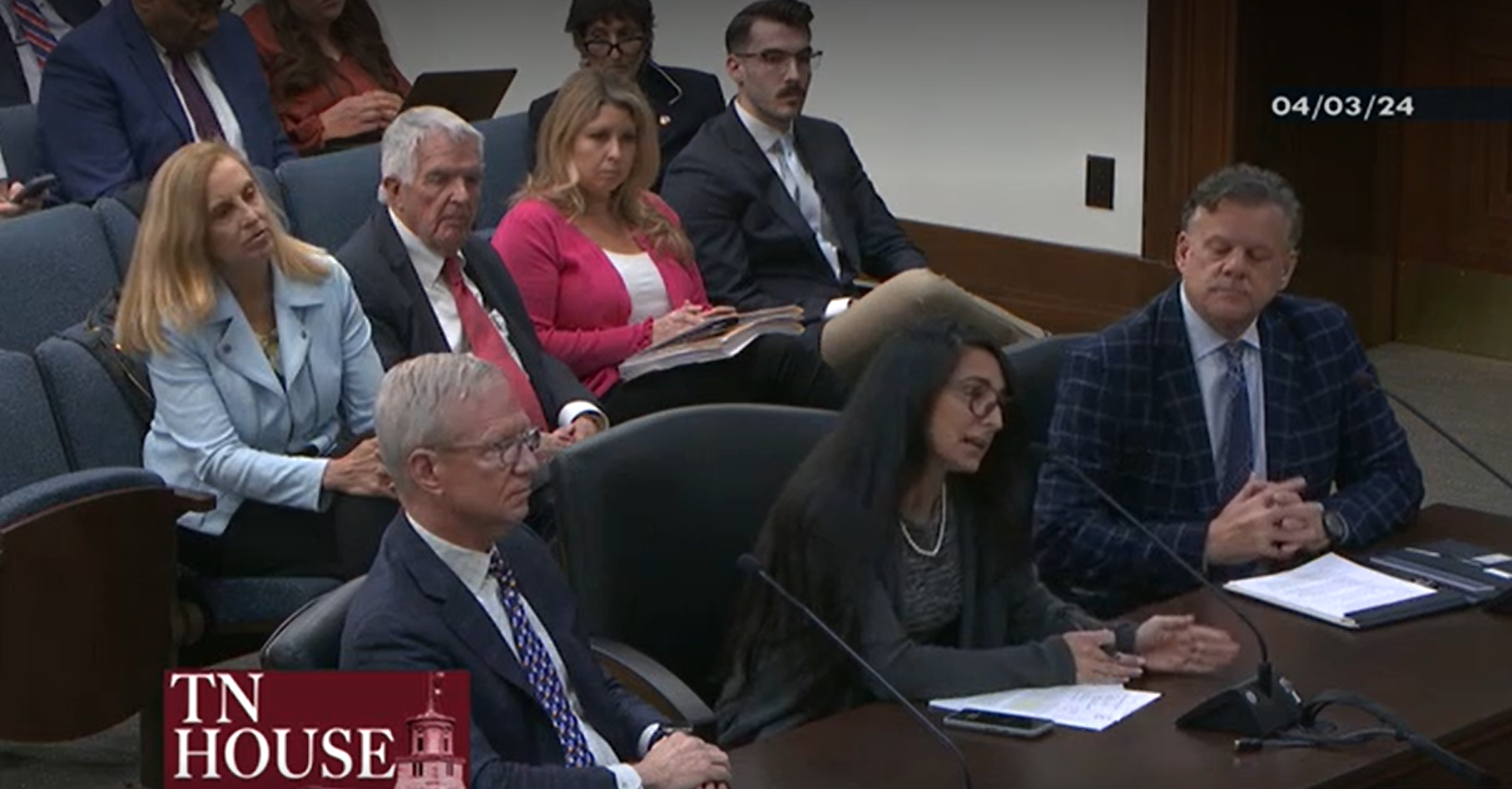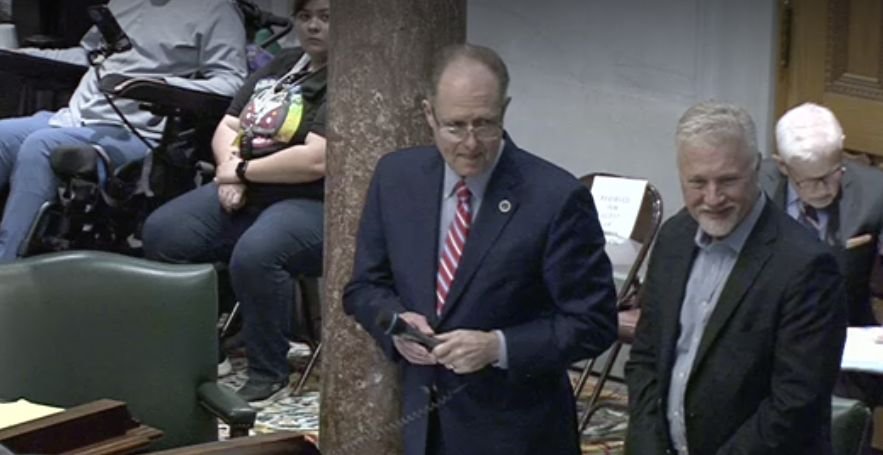By Jackie Kancir
State policy can be like the Wild West. It’s very tribal, outsiders aren’t welcomed kindly, and disagreements can quickly turn into metaphoric hair-trigger duels in the public square. Last month, the State of Tennessee had its own display of this.
Tennessee is only in legislative session from January through April. That’s a chaotic, high-speed, tenuous time for policymakers. I took the national role as Policy Director for NCSA in early February. By March, my schedule was buried from morning to night with Zoom calls as I worked to grow the National Grassroots Network and other matters related to my new role. Finding time to microwave my cup of coffee ranked way higher on my priority list than checking in on state policy.
One Friday, I received a call, “Did you hear about this?” Over the weekend, my email and Facebook Messenger piled high with more concerns: “What are you going to do about this?” “You need to make a public statement. You can’t let this happen.” “How could they?!”
The TN Disability Coalition (TDC) was opposing a bill I knew nothing about, HB2497.
Two nonprofits were offering innovative housing solutions for people with I/DD in the state, and neither were asking the government for a dime. But the Department of Intellectual & Developmental Disabilities (DIDD) code required buildings to be 500 yards apart and housing no more than four people per building — and this code would prevent these new housing options. They were simply asking for those two factors to be waived for them to open their new programs.
Gloriana sought to build residential homes within an existing senior living community. This novel approach would be an inter-generational, inter-ability community where aging caregivers and their adult children with IDD, no matter the level of care, would be able to reside together. Anyone who has ever experienced the emotional hangover after watching the poignant documentary Mimi & Dona is surely celebrating that concept. They planned to add three homes that each provide four “Jack and Jill” style suites, where the parent and loved one will have their own bedrooms and share a conjoined bathroom.
BrightStone had raised over $20million through community donations. They currently have two homes with plans to build 11 more. Their master plan would offer a total of 13 beautiful 7-bedroom 6.5-bath homes on a breathtaking 140-acre property with the latest innovative technology, learning center, horticulture, equestrian center, fishing pond, and much more. BrightStone has four additional homes on the property rented to families without disabilities. People living at BrightStone have jobs, go into the community, and most amazingly, the community comes to them, too. Our current state models of CLS living through ECF Choices (Tennessee’s HCBS waiver) have nothing that comes close to the integration and quality of life options available at BrightStone.
The Tennessee code would prohibit these developments. Without HB2497 providing an exception for these two programs, neither of these 501c3s could move forward in offering people with I/DD additional housing options in Tennessee.
To plot a path forward, I wanted the full story. I vigorously analyzed all opposition statements, social media posts, email blasts, YouTube videos, videos of prior subcommittee hearings, and the full text of the bill and fiscal note. I also met with parents who had direct experience with the nonprofits, staffers of the bill sponsors’ offices, the organization most opposed to the bill, the Chief of Staff of BrightStone, a family member of a former resident of the old state-run TN hospitals, lobbyists, and leaders of other national organizations who had dealt with similar issues. I then got to work pouring through DIDD code, case law, CMS rules, historical news articles related to Tennessee’s dark history with its former state-run hospitals, and peer-reviewed academic research.
Only after this exhaustive work did I make my decision to strongly support HB2497. The horse I picked were strangers to me, but my analysis determined this was unequivocally the right choice – though my fellow disability rights activists would surely disapprove.
The bomb of my support of HB2497 has led to more meaningful discussions and focus on the real problems facing people with high acuity needs in Tennessee. We are finally discussing how to protect against the experience of institutionalization and acknowledging the baseless assumptions that HCBS was automatically anti-institutional so long as you “protected” people with disabilities from living in houses with more than three other people and kept those houses further than 500 yards apart.
The hearing I testified at was uncharacteristically long, an hour and a half. You can watch the bill hearing here. Testimony starts at the 15 minute mark with the opposition side. Our side starts at the 21 minute mark. Then it’s back and forth for over an hour.
To spare you the agony, however, in short, I argued for self-direction and individual choice. I supported my premises with relevant recent research. I challenged the code as obsolete, informing the legislative body that the status quo HCBS in Tennessee has institutional experiences itself. The other side argued to keep the status quo and deny choice, supporting their position only by a survey of 1000 people in 1999 and the complete lie that this bill would risk opening the state to an Olmstead violation.
For a three-minute summary of my position, listen to the opening I’d prepared for a hearing that ended up canceled. Despite the cancellation, I provided this speech in written form to the organization opposing the bill. Additionally, NCSA published a formal letter of support to the State of Tennessee for HB2497, complete with a litany of links for the opposition to gain clarity. Thus, fully aware of the real problems of current institutional experiences facing Tennesseans and with plenty of sources to show this bill would not violate any federal laws, the opposition went forward with their distracting propaganda anyway, defending lack instead of choice. Parents with loved ones on ECF’s empty waiver understandably were outraged.
The bill passed the House Health Committee 22-5, and on its last stop before the governor’s desk, it passed the full Senate floor unanimously. People with I/DD will have more choices coming, in spite of the heavy campaigning of ad hominem attacks and fear-mongering false equivalencies in the name of disability “justice.”
We’ve had these issues in multiple other states, most recently A New Leaf in Oklahoma, after dozens of others. They all end up the same, eventually getting to open and being wildly successful but not before coming under costly exhaustive pressure from the state agencies and disability advocates who are more committed to propaganda than to the populations they claim to “protect and serve.” Neither CMS, ADA, nor Olmstead prohibit these settings, but disability justice advocates love falsely citing them to scare legislators to keep the status quo.
Fortunately, truth won the day over propaganda. I urge all states to perform a deep review of their codes. Any ipse dixit codes with no true purpose for protecting people with disabilities stifles innovation, and worst of all, limits opportunities for people with disabilities who don’t fit within the limited options the state provides.
Let’s start treating people the way they want to be treated and stop this nonsense of frivolously prohibiting people from options simply because those opposing them wouldn’t want those options for themselves.
Jackie Kancir is Policy Director for NCSA, and a seasoned state advocate in Tennessee.


